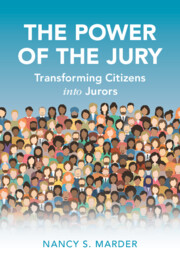A central goal of Critical Race Theory (CRT) is to deconstruct the “jurisprudence of color-blindness” that is infused with the language of equality while operating to maintain racial hierarchies. Color-blind ideology extends to the procedures governing criminal juries, ensuring they are disproportionately white while constraining diversity of perspectives, especially regarding policing issues. In this paper, we merge CRT insights about color-blindness and race-consciousness in the criminal jury context and in the Fourth Amendment law governing policing, to advance empirical socio-legal scholarship on race and jury decision-making. We analyze deliberations data from mock jury groups that decided on verdict in a federal drug conspiracy trial, focusing on how groups talked about law enforcement testimony. We find that negative discussions of the law enforcement testimony is associated with shifts toward acquittal, there are more skeptical discussions about this testimony when the defendant is Black, and that the presence of at least one Black juror in any given group is associated with more skeptical discussions of law enforcement testimony. Our qualitative analysis illustrates how Black jurors, in particular, raised concerns about policing, including unjust treatment of Black citizens, then successfully tied those concerns to the specific legal considerations at issue in the case.


